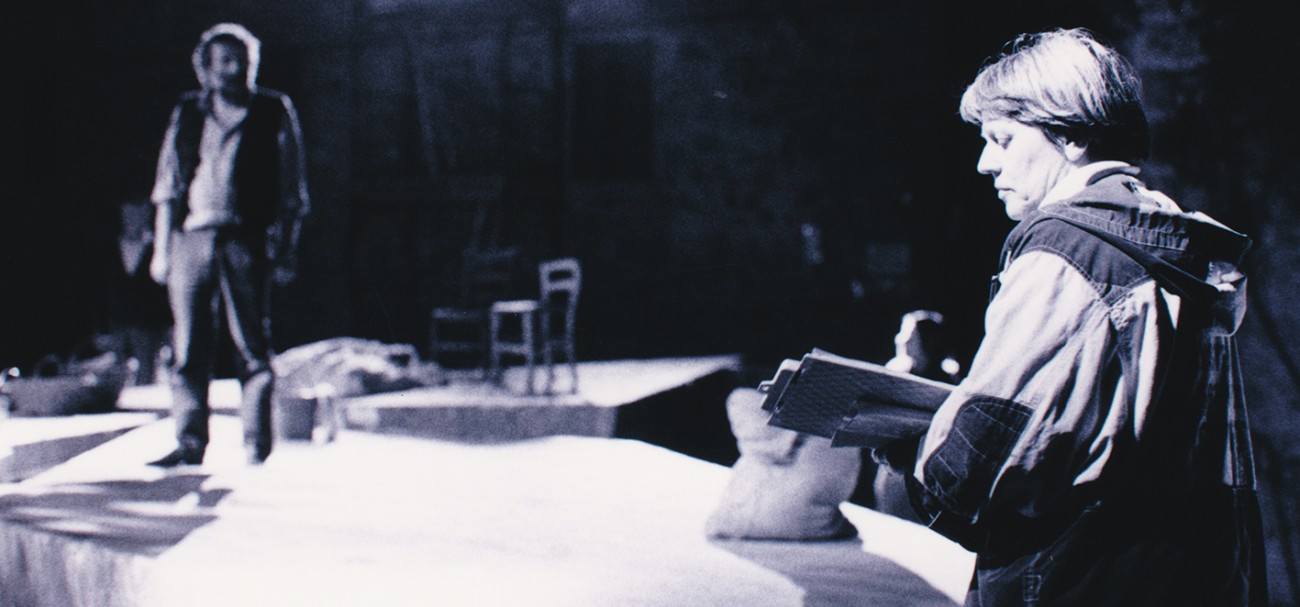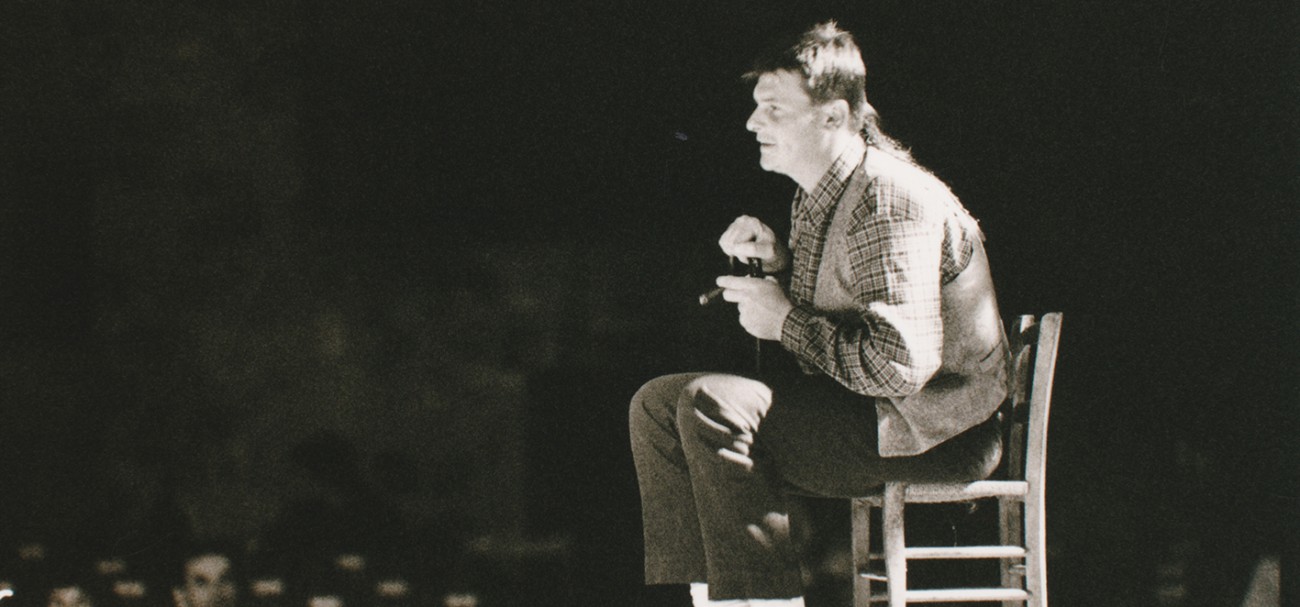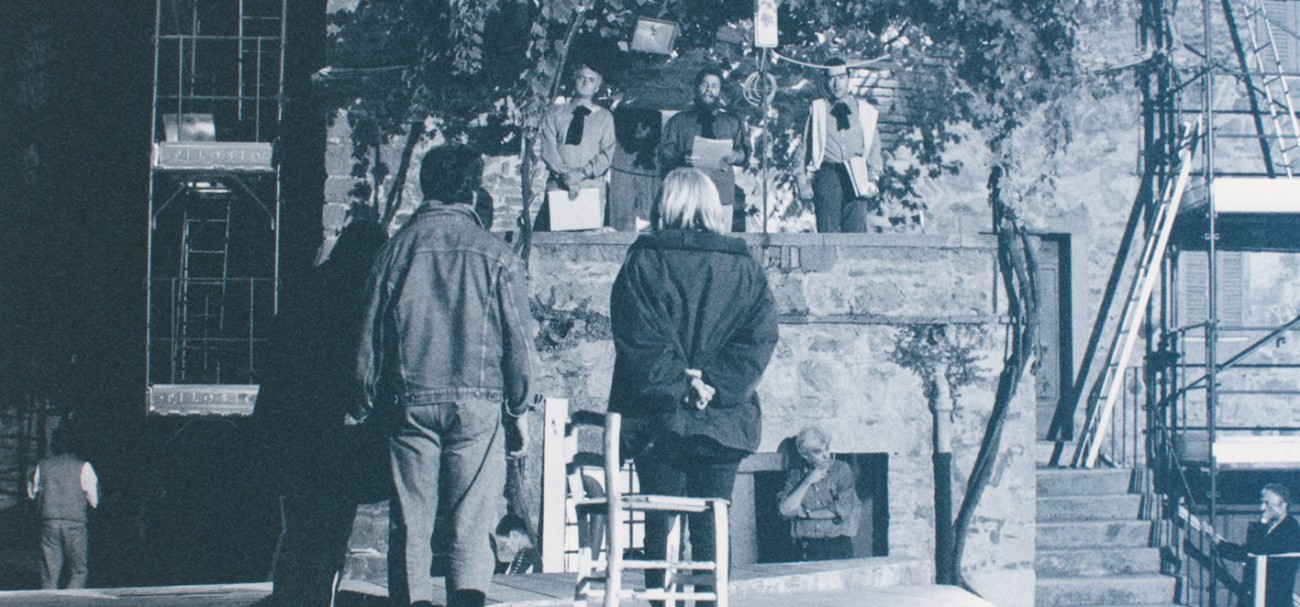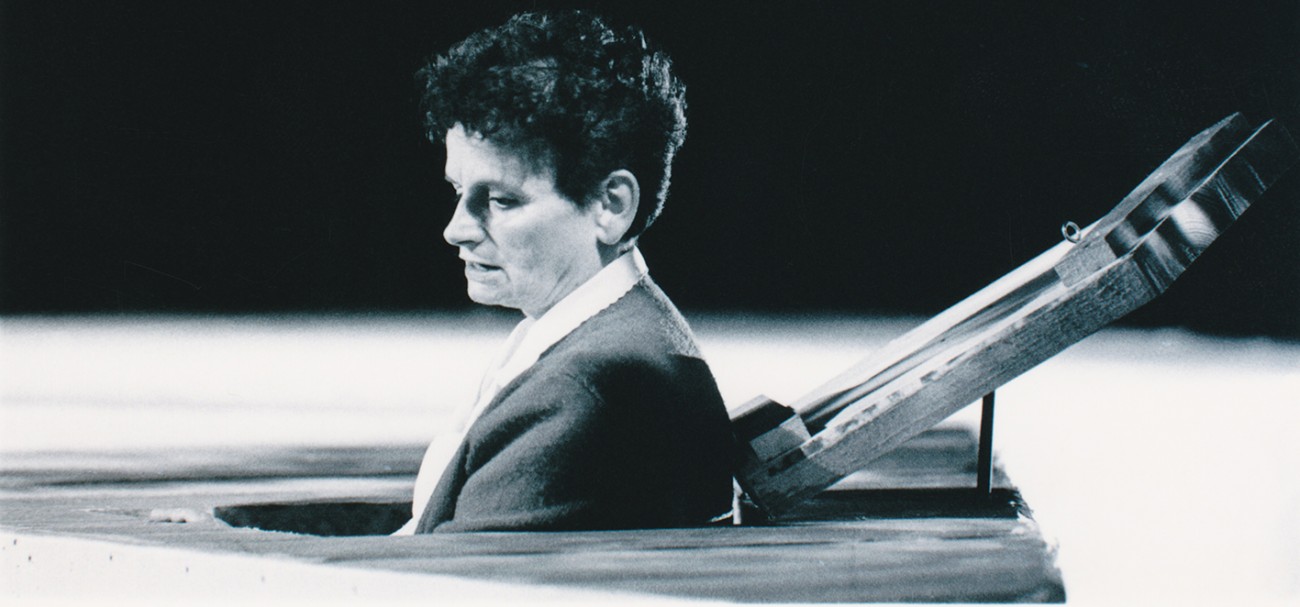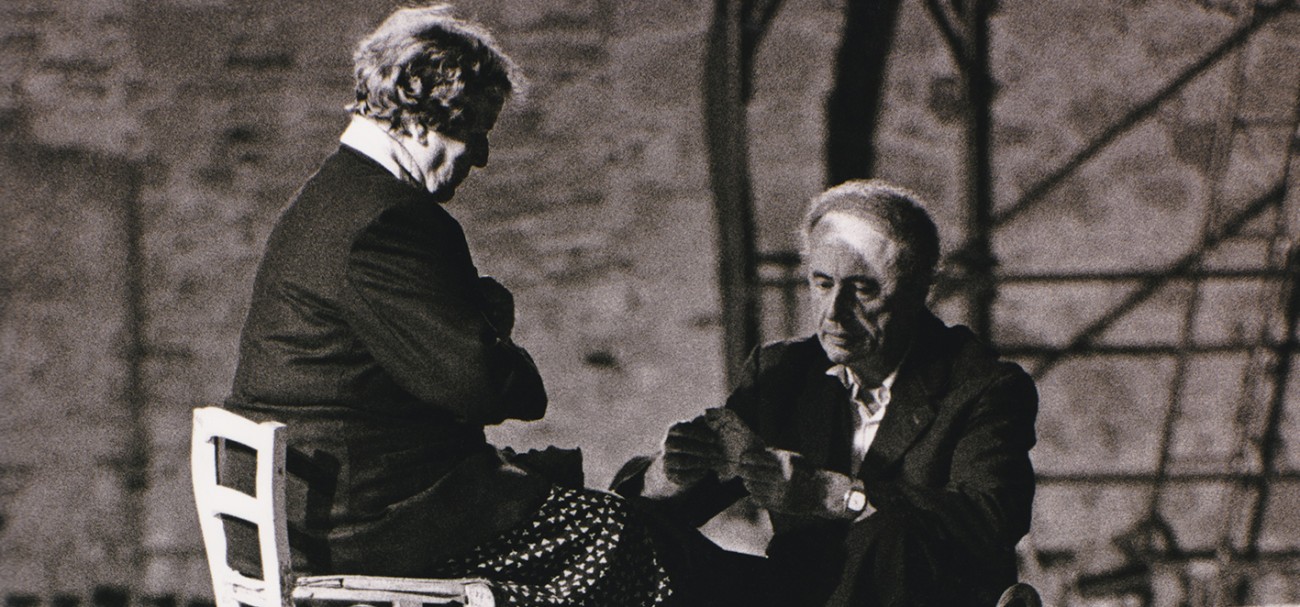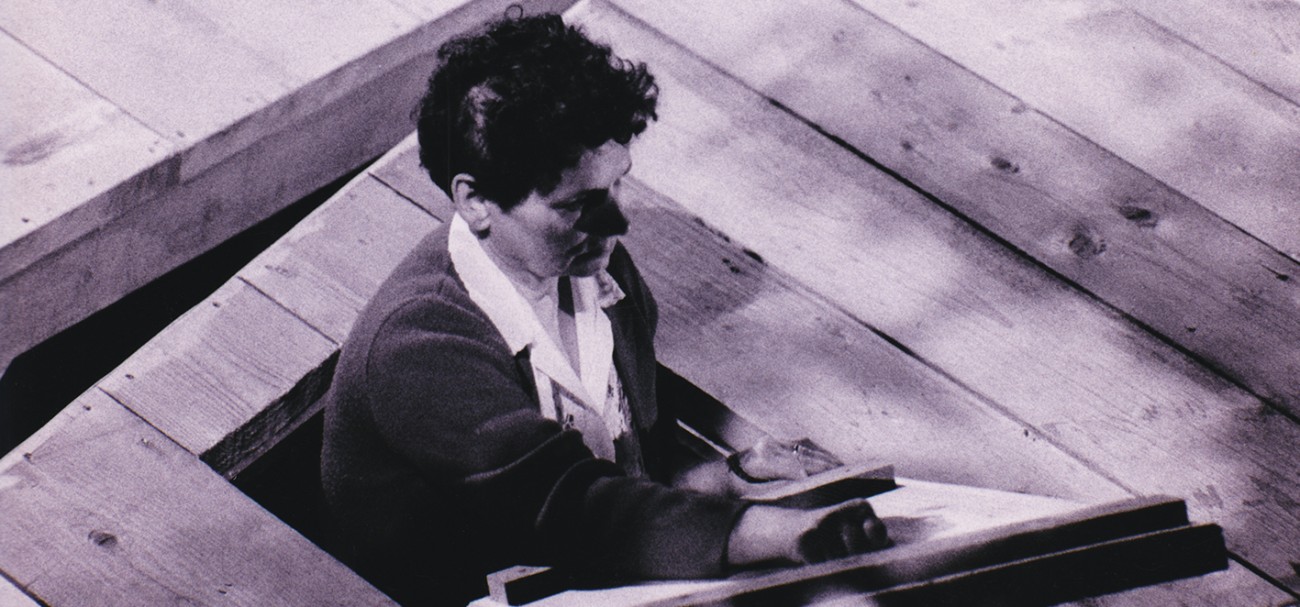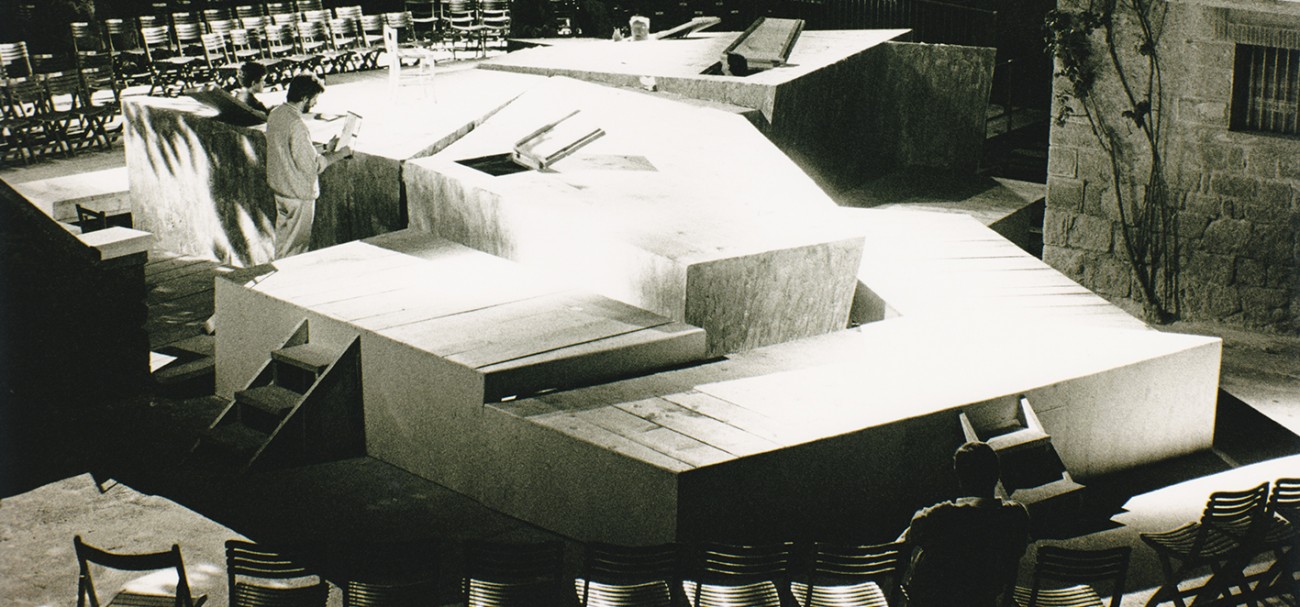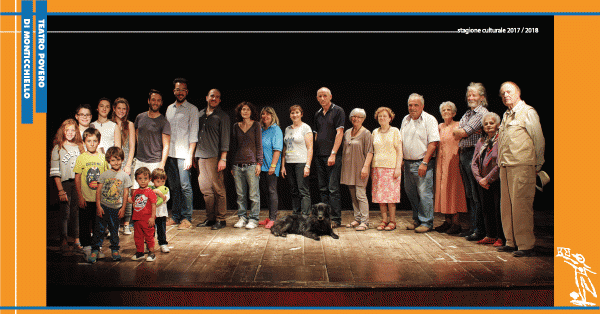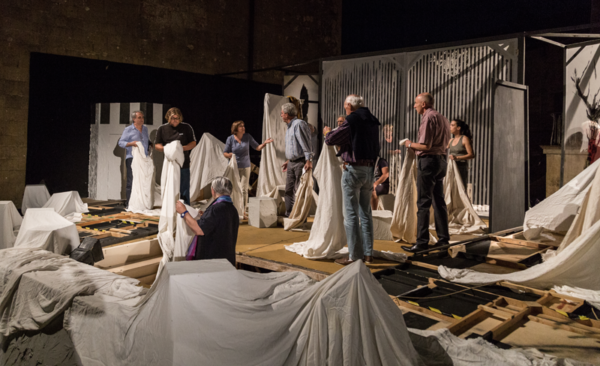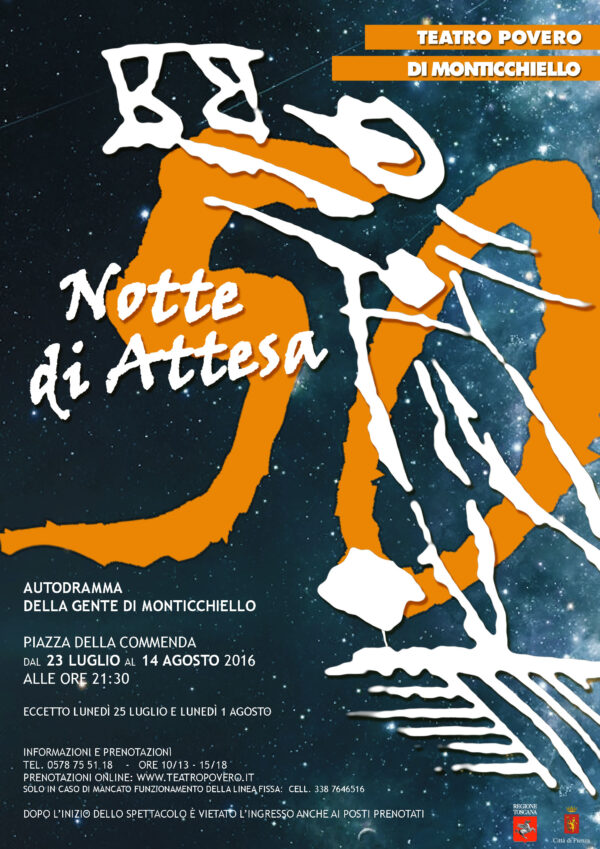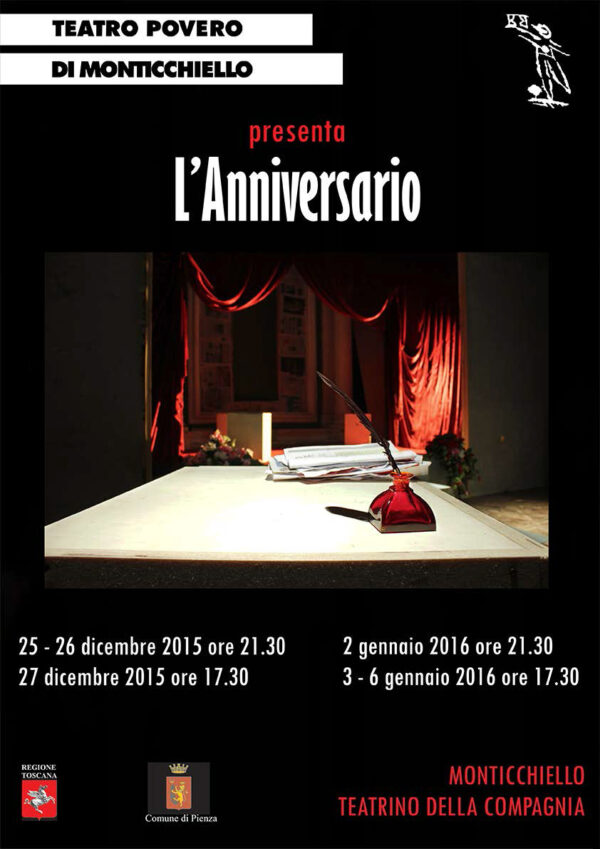(The title is a fabricated word, indicating ‘the surgical removal of old people’.)
The Teatro Povero decided this year to explore the theme of old age in modern society, a subject treated once before in 1974. This time, however, the approach was in the form of a disturbing futuristic fantasy. The autodramma showed a world which took to an exaggerated level certain tendencies (both in private behaviour and in public policy) which might be dimly perceivable at the end of the 20th century.
The increase in numbers of the elderly, and society’s need to look after them somehow, was presented as having led to a series of regulations and social structures whereby old people were only recognised and cared for if they adapted their behaviour to stereotypes which society could accept and from which society could profit. In this imaginary world of all-pervasive state control, an increasing number of elderly people were depicted as having opted out of the rules: they were seen living concealed ‘underground’ lives and contemplating their memories of a vanished world. Their insistence on the value of rural life and values was depicted as a resistance to the overwhelmingly urban focus of modern society.
Part of Monticchiello’s regular approach to such problems, real or imagined, in the modern world would be to seek advice and models by revisiting and dramatising the ‘peasant civilisation’ of the past. In this case, however, the model was shown as being of limited use: the relations between the generations in a rigid patriarchal society were no more positive or liberating than in the imagined world of the future. Once more the ‘peasant family scene’ was revealed as a play within a play, partly arising out of the memories of the recalcitrant old people seen earlier. It was also a drama in which actors had chosen to switch roles between the generations. The eventual invasion of the stage by a band of village musicians who were determinedly young provided an end to the show, but not an answer to the questions asked.

